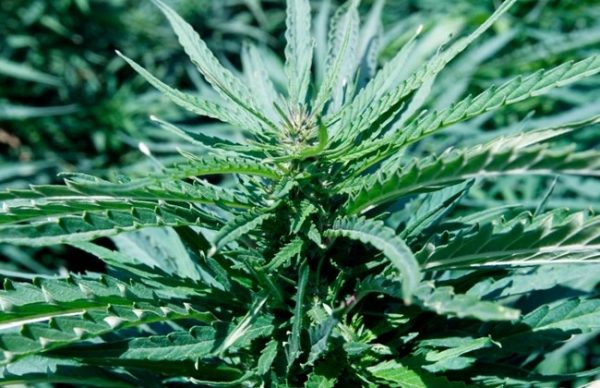 Lebanese Parliament Speaker Nabih Berri announced, Wednesday, “The Lebanese Parliament is preparing to study and adopt the legislation necessary to legislate the cultivation of cannabis and its manufacture for medical uses in the manner of many European countries and some US states.”
Lebanese Parliament Speaker Nabih Berri announced, Wednesday, “The Lebanese Parliament is preparing to study and adopt the legislation necessary to legislate the cultivation of cannabis and its manufacture for medical uses in the manner of many European countries and some US states.”
Berri’s announcement follows a proposal by McKinsey, a global consulting firm. Cannabis was a multimillion-dollar industry before it was criminalized. McKinsey gave Lebanese President Michel Aoun its report on boosting the Lebanese economy this month. Its contents have not been made public.
Lebanese cannabis, which is well-known for its “good quality,” was a flourishing industry during the civil war (1975-1990). After the war, the Lebanese State sought to eradicate it in favour of alternative crops. However, these promises were not kept.
The Lebanese law imprisons all those who sell cannabis. Yet it is still grown in Beqaa province. Cannabis is planted in the spring and harvested in September. It is then dried under the sun for three days before being cooled, then “hammered” or grinded.
Druze leader and MP Walid Jumblatt is a prominent advocate for legalizing cannabis. The Lebanese economy has deteriorated since 2011 due to political stalemate. The conflict in neighbouring Syria has exacerbated the economic crisis.
Lebanon ranks third on the list of the world’s most indebted countries. The country’s fiscal deficit has doubled over the past seven years from $ 2.3 billion in 2011 to $ 4.8 billion in 2018.
What is Cannabis?
Cannabis is derived from the cannabis plant (cannabis sativa). It grows wild in many of the tropical and temperate areas of the world. It can be grown in almost any climate, and is increasingly cultivated by means of indoor hydroponic technology.
The main active ingredient in cannabis is called delta-9 tetrahydro-cannabinol, commonly known as THC.
Cannabis is used in three main forms: marijuana, hashish and hash oil. Marijuana is made from dried flowers and leaves of the cannabis plant. It is the least potent of all the cannabis products and is usually smoked or made into edible products like cookies or brownies (see Factsheet: Marijuana Edibles). Hashish is made from the resin (a secreted gum) of the cannabis plant. It is dried and pressed into small blocks and smoked. It can also be added to food and eaten. Hash oil, the most potent cannabis product, is a thick oil obtained from hashish. It is also smoked.
Cannabis is usually smoked in hand-rolled cigarettes (known as “joints”) or in special waterpipes (“bongs”).
How Many People Use Cannabis?
Cannabis is the most widely used illicit drug in the United States. According to the 2012 National Survey on Drug Use and Health, 7.3% of Americans aged 12 or older had used marijuana within the previous 30 days. The average age at first use was 17.9 years.
Marijuana is the second most-commonly used substance among 12th graders (alcohol is the first), with 27% of US high school seniors reporting current (past 30-day) use.
Other Names for Cannabis
Cannabis is also known as marijuana, grass, pot, dope, Mary Jane, hooch, weed, hash, joints, brew, reefers, cones, smoke, mull, buddha, ganga, hydro, yarndi, heads and green.
Why Do People Use Cannabis?
Most people who use cannabis do so to experience a sense of mild euphoria and relaxation, often referred to as a “high.” Cannabis causes changes in the user’s mood and also affects how they think and perceive the environment, e.g. everyday activities such as watching the television and listening to music can become altered and more intense.
What Are the Long-Term Effects of Cannabis?
There is limited research on the long-term effects of cannabis. On the available evidence, the major probable adverse effects are:
- Increased risk of respiratory diseases associated with smoking, including cancer;
- Decreased memory and learning abilities;
- Decreased motivation in areas such as study, work or concentration.
There is also much concern about the link between cannabis use and mental health problems and the risk of dependence. For further information on these issues please refer to the fact sheets on Mental Health and Cannabis and Dependence on Cannabis.
MEM/YL

Leave a Reply
You must be logged in to post a comment.